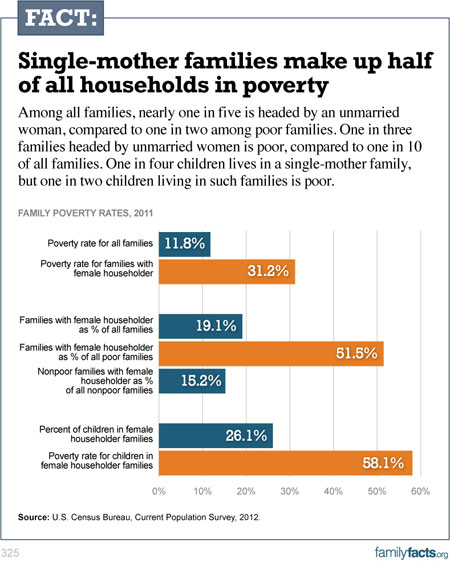As a Senator, Barack Obama was right—there are serious disadvantages to being raised without a father.
“We know the statistics—that children who grow up without a father are five times more likely to live in poverty and commit crime, nine times more likely to drop out of schools, and 20 times more likely to end up in prison,” then-Senator Obama stated in Chicago just a few months before the 2008 presidential election.
He called on listeners to be honest in admitting that too many fathers “have abandoned their responsibilities, acting like boys instead of men. And the foundations of our families are weaker because of it.”
The Daily Signal depends on the support of readers like you. Donate now
Single-mother homes compose one-half of all households in poverty. Today, one out of every four children lives with only his or her mother. Of those children in single-mother homes, 58 percent are impoverished. In contrast, as Heritage’s Robert Rector points out, marriage reduces the probability of child poverty by 82 percent. Growing up with a married father can have significant impact on a child’s economic, social, and psychological well-being.
But how can we say that fathers are essential, if policy redefines marriage to make fathers optional?
“[R]edefining marriage further distances marriage from the needs of children and denies the importance of mothers and fathers. Redefining marriage rejects as a matter of policy the ideal that children need a mother and a father,” explains Heritage’s Ryan T. Anderson. “Redefining marriage diminishes the social pressures for husbands to remain with their wives and children, and for men and women to marry before having children,” he continues.
Redefining marriage ignores the distinct and essential roles that a father and mother each play in a child’s life.
Sarah Jean Seman is currently a member of the Young Leaders Program at The Heritage Foundation. For more information on interning at Heritage, please click here.































